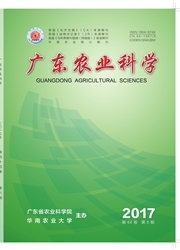

 中文摘要:
中文摘要:
通过搜集来自河北、浙江两省6市12县,共418份参与“农超对接”的农户数据,运用双边随机前沿分析,对“农超对接”过程中农户与超市的议价能力差异进行测算.研究发现:(1)农超对接交易双方的议价能力对农户最终收益的确定具有重要影响,并且超市具有更强的议价能力和决定权;(2)农户的年龄对农户最终收益的影响呈现出倒“U”型曲线关系;(3)农户自身的异质性对于农户的议价能力和净剩余具有一定影响.提出了相应建议以缩小因信息不对称所带来的议价能力差异.
 英文摘要:
英文摘要:
By using data fiom 418 peasants participating in farming-supermarket docking in 6 cities located in Zhejiang and Hebei provinces, this research tried to calculate the degree of information asymmetry and the difference in bargaining power between the peasants and the traders with the method of two-tier stochastic frontier model. The results suggested that: (1)the degree of information asymmet17 and the difference in bargaining power between peasants and traders had a significant impact on the determination to the final profit; (2)the relation between the peasants' ages and the final income showed an inverted "U" curve; (3)heterogeneity of the peasants did have effect on peasants' bargaining power and the net surplus. Based on these results, this research put forward some suggestions to reduce the gap in bargaining power.
 同期刊论文项目
同期刊论文项目
 同项目期刊论文
同项目期刊论文
 期刊信息
期刊信息
